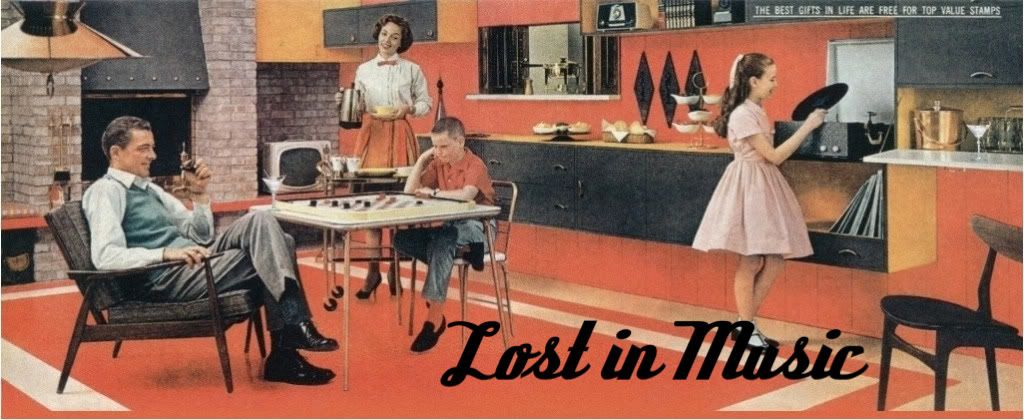It really is quite amazing how many great albums were released in this latter part of 1981. Not that I wish to play down any albums released earlier or mid-year but there just seems to be a concentration of greatness in these last couple of months. Must be something to do with the stars and the planets. Maybe not.
Moving swiftly on from The Human League's Dare (and missing out an all important album, leaving it until last, can you guess what it is readers?) here we have Japan's magnum opus Tin Drum released at the end of November.
As most of you will know it was their last studio album (until the Rain Tree Crow project a decade later) and their most successful commercially. Quiet Life (1979) and Gentlemen Take Polaroids (1980) had gained much critical acclaim and had done quite well for the Catford glam-boys, but ironically it was Tin Drum which took them to super-stardom, albeit briefly, and mucho chart success - both with the album and no less than 4 singles taken from it - and then on to cult status.
They'd got off to a slow start with the new sound in the summer with The Art of Parties single which enjoyed modest success, and is the album's opening track albeit in a remixed form, the sound now blending in better with the faux-chinois and electronic sounds of the album. I say 'electronic' but to classify it as synth-pop (as some do) is both crass and unjustified. Apart from Sylvian's now characteristic voice (somewhere between Bowie, Ferry and Iggy Pop) the Japan sound is also characterised by the late Mick Karn's bendy fretless bass, the steady but creative drumming by David Jansen and, last but not least, Richard Barbieri's 'electronics'. (Guitarist Rob dean had since left the band)
 | |
| Japan: just having a laugh out of the studio. |
While today in the days of 'e-mail bands' and swapping ideas and lyrics over the interweb and such that may not seem so difficult, back in the day it would have made for a very disjointed and tedious process indeed.
However the album itself does all come together quite wonderfully, and may even be considered a kind of concept album taking in sounds, moods and lyrics with an oriental theme. The band had finally come to write an album that - almost - befitted their name. Titles like Canton, Visions of China and Cantonese Boy may sound corny especially when listed on an album by a band called Japan, but they represent some of the finest pop moments of this and indeed any other band of the time. Oddly, Visions of China as a single didn't do very well chart-wise. Previous label Hansa had hastily re-issued the 1979 Quiet Life single over the summer, as well as a retrospective album Assemblage, perhaps creating some consumer confusion and pre-empting sales for the new album and material. (Japan's singles back catalogue is rife with re-issues and re-purposed tracks). In fact it wasn't until the release of the superb Ghosts as a single in March of 1982 - and that TOTP performance - that things really got going for Tin Drum, giving it a longer run for its money in the charts. From its release right up until the end of June 82, Tin Drum was rarely out of the Top 40.
As already mentioned the album spawned four hit singles, plus a fifth if we consider the live version of Canton released from Oil On Canvas in 83, although my favourite remains the marvellously tongue-in-cheek Still Life In Mobile Homes, an up-beat number which opens side 2 and has everyone on fine form, as well as some gorgeous female-nipponic wailing and a great screechy guitar solo. Enjoy!


No comments:
Post a Comment